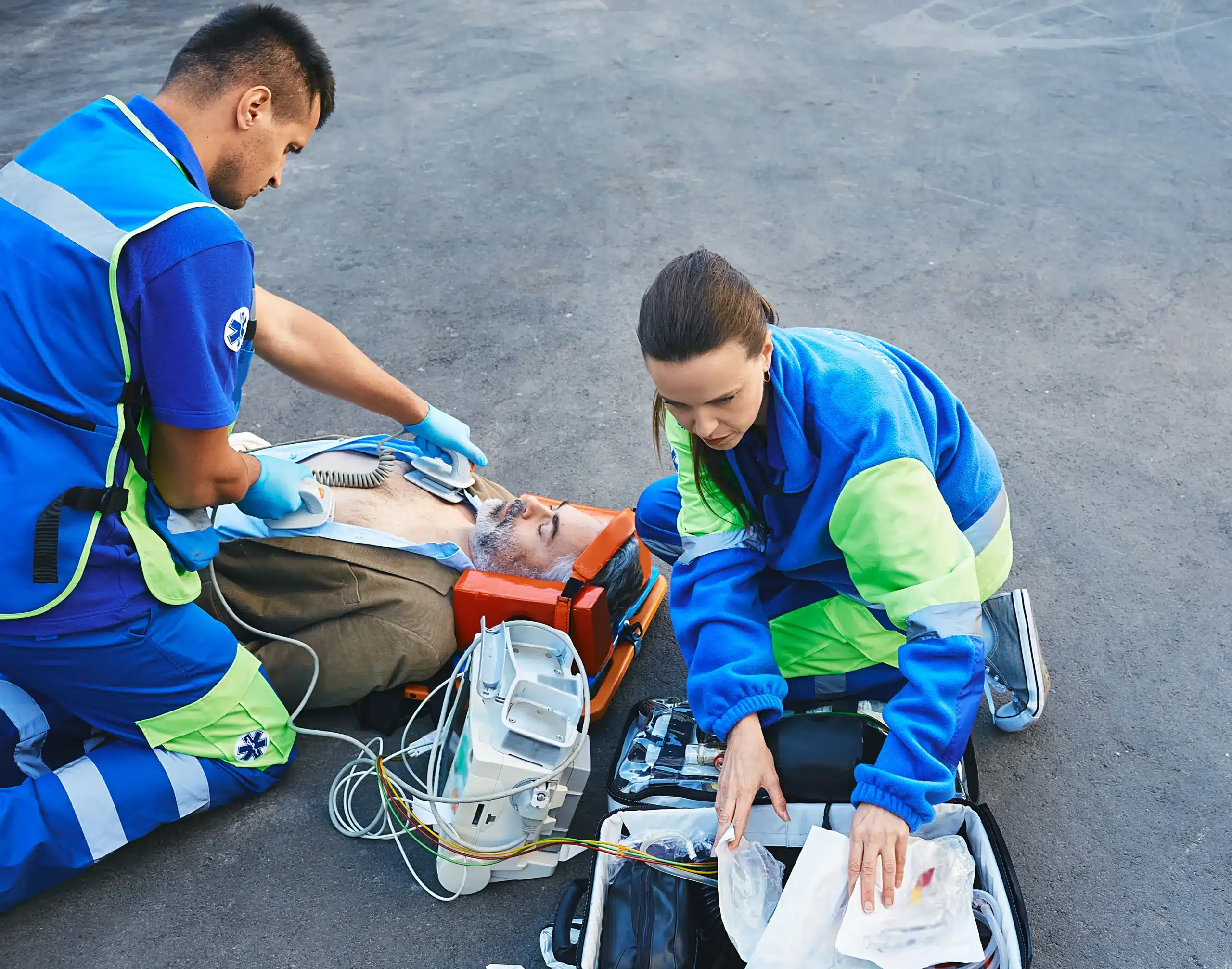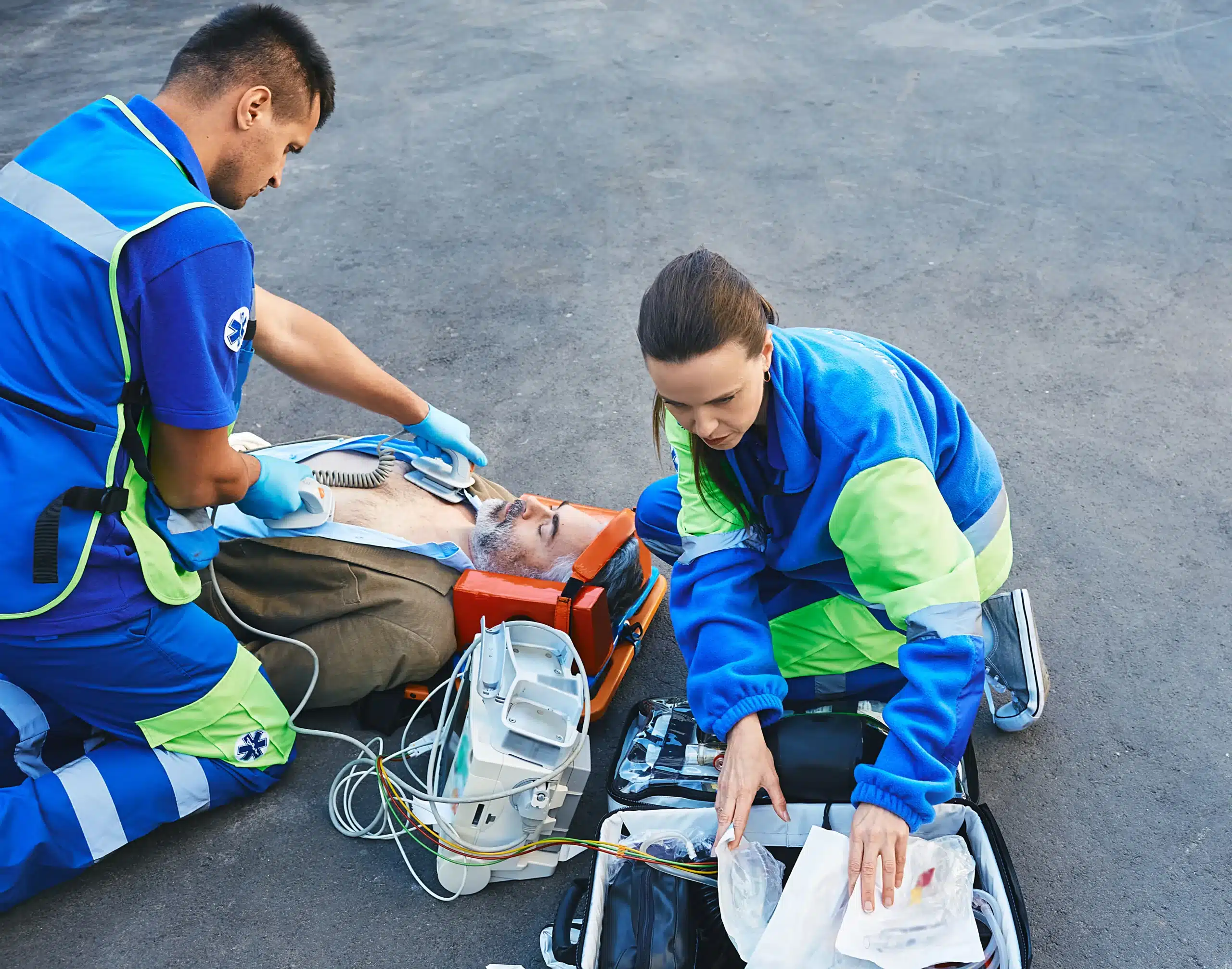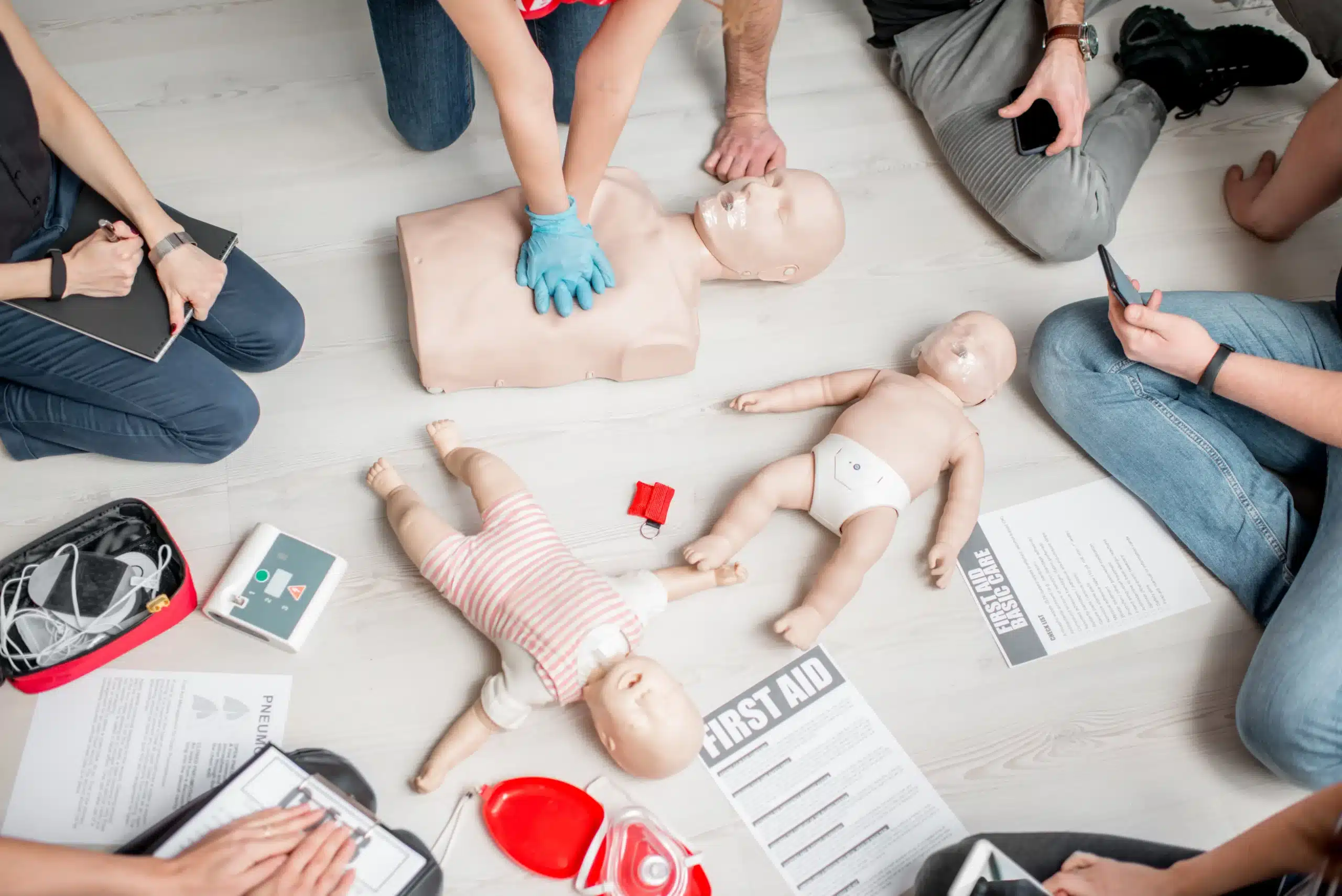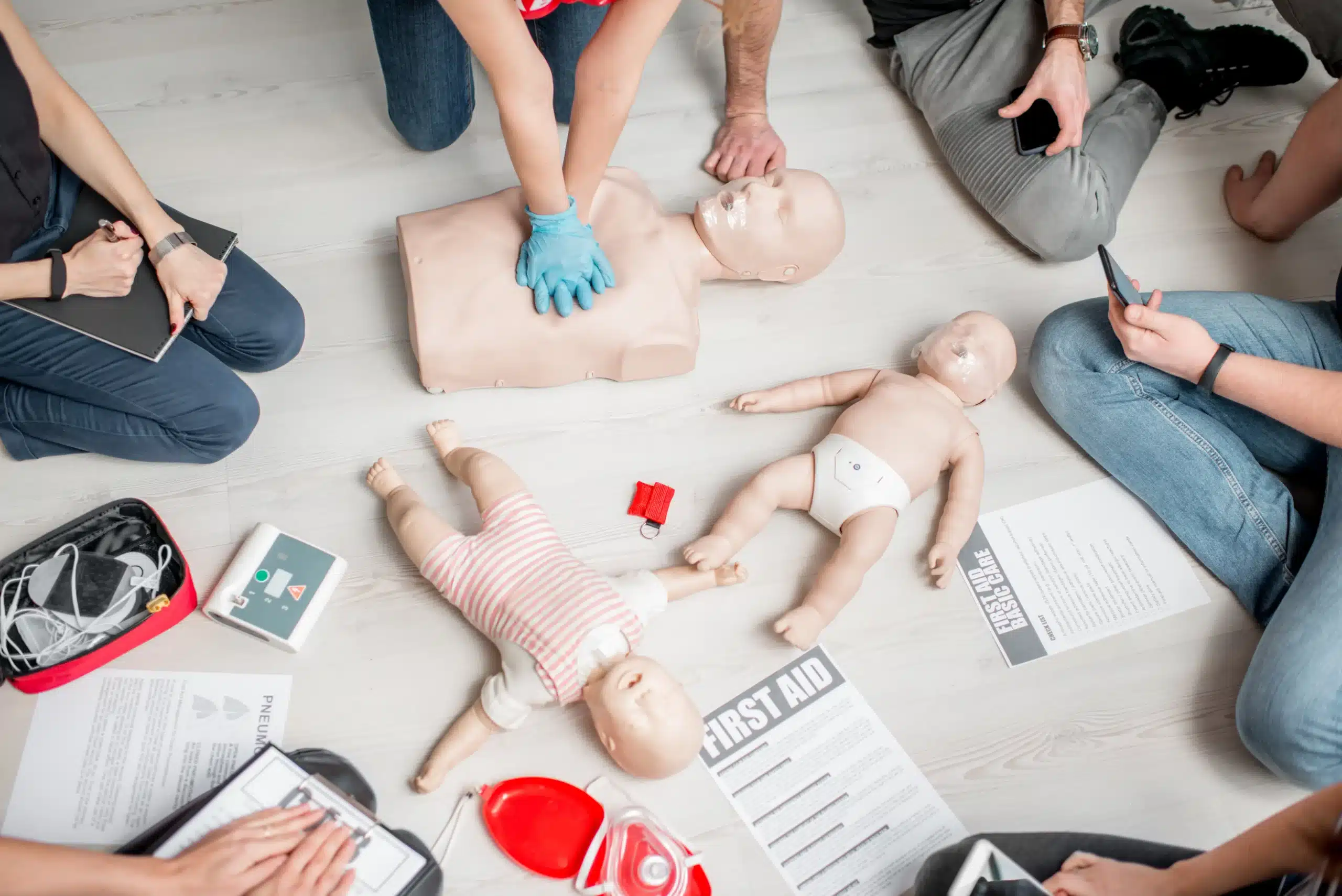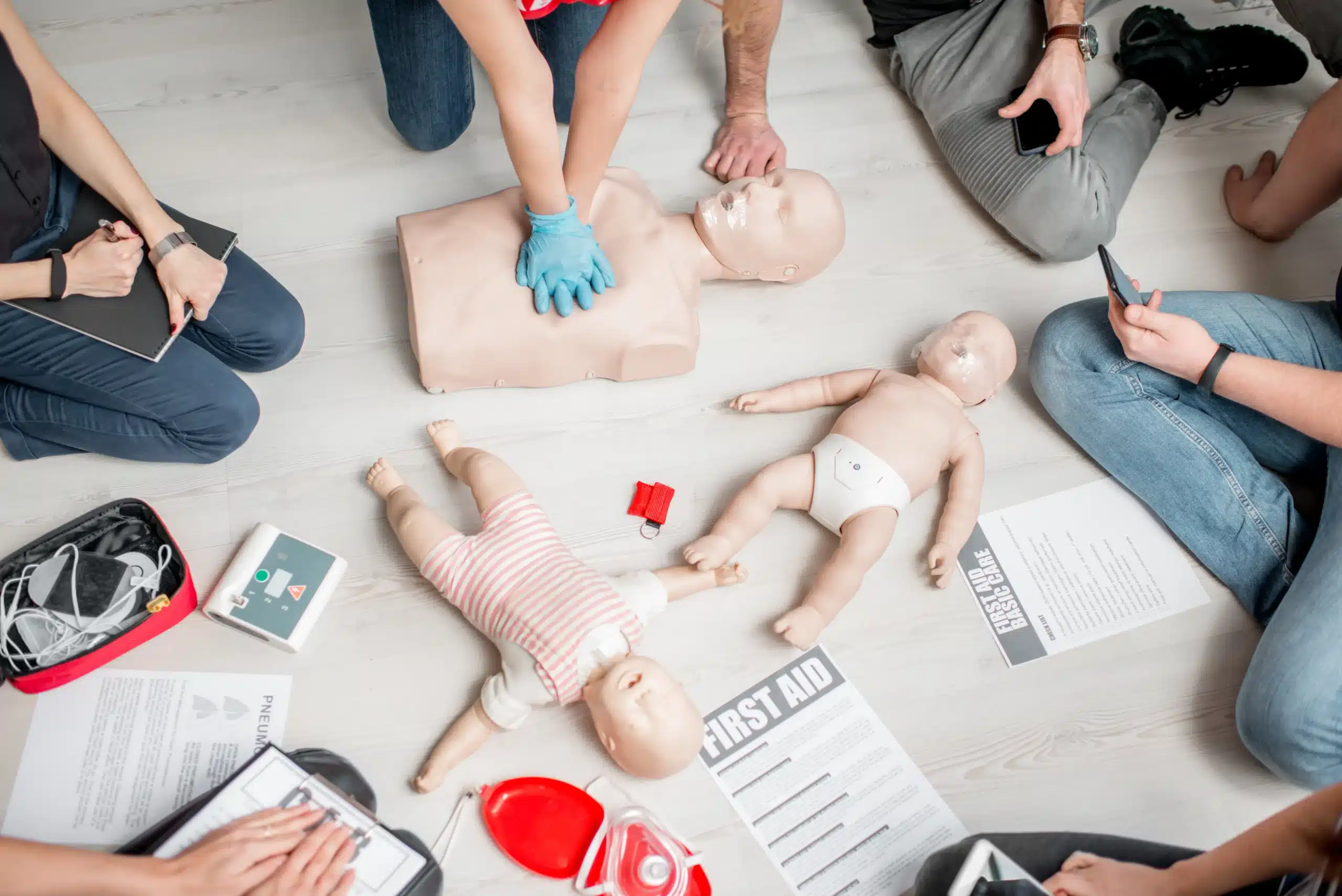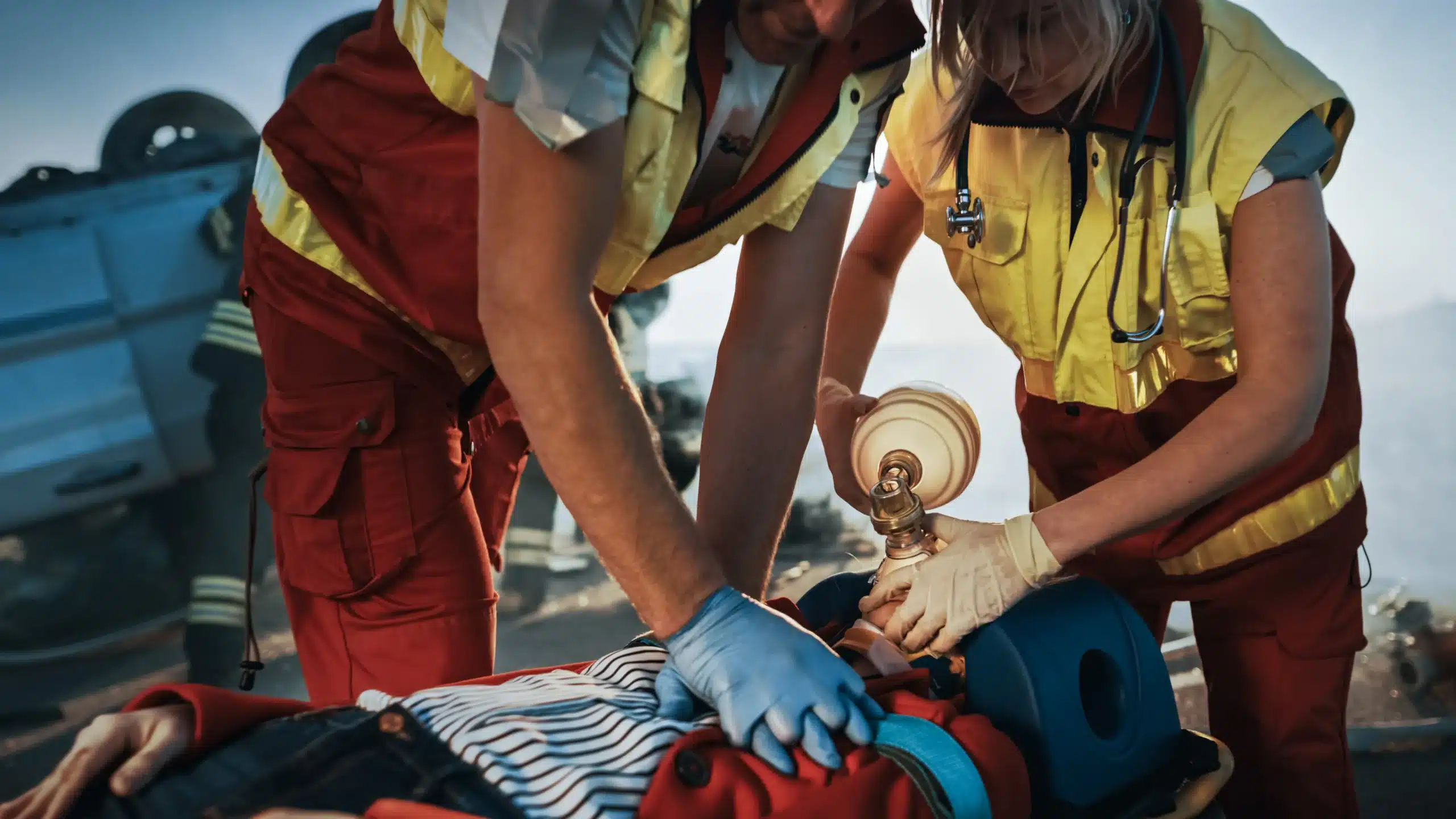Learning BLS can feel like getting a superpower—the power to save a life. But finding the right BLS courses in Walnut Creek can be tricky. This comprehensive guide breaks down everything you need to know about BLS certification, from core skills and course options to costs, registration, and the many benefits of becoming certified. Whether you’re a healthcare professional, a childcare provider, or just someone who wants to be prepared, this guide will help you find the perfect BLS course in Walnut Creek to empower you to make a difference. We’ll explore different learning styles, discuss in-person vs. online options, and help you choose the best course format for your needs. Plus, we’ll address common concerns about BLS training, like time commitment and performance anxiety. Let’s get started!
Key Takeaways
- BLS skills are for everyone: Whether you’re a healthcare professional, a parent, or simply someone who wants to be prepared, BLS training equips you with life-saving skills applicable in any setting.
- Finding a BLS course is simple: Many providers in Walnut Creek offer flexible schedules and formats, including blended learning, to fit your lifestyle. Consider factors like cost, location, and instructor experience when choosing a course.
- BLS certification is a valuable asset: It can enhance your career prospects, boost your confidence in emergencies, and empower you to make a difference in your community.
What is BLS?
What is BLS and Why is it Important?
Basic Life Support (BLS) is a level of medical care used for victims of life-threatening illnesses or injuries until they can receive full medical care at a hospital. Trained medical personnel, including EMTs, paramedics, and other healthcare providers, can provide it. Many assume BLS training is only for healthcare professionals, but these lifesaving skills are valuable for anyone. BLS certification teaches how to provide immediate care, including CPR, using an AED, and helping someone who is choking. These skills are crucial in the moments before professional help arrives. The goal of BLS is to maintain a patient’s airway, breathing, and circulation. The World Health Organization has shown that high-quality BLS, when delivered according to current guidelines, leads to better patient outcomes. BLS training empowers you to respond effectively in emergencies, regardless of your medical background. At Safety Training Seminars, we offer a variety of BLS courses to equip you with these essential skills.
Core BLS Skills
BLS training gives you the skills to handle various medical emergencies. You’ll learn how to perform high-quality CPR on adults, children, and infants, and how to use an automated external defibrillator (AED), which can restore a normal heart rhythm during sudden cardiac arrest. You’ll also learn rescue breathing techniques and how to help someone who is choking. These core skills create a strong foundation for responding confidently and competently in emergencies. CPR Education details these essential skills and highlights their importance in providing immediate care and potentially saving a life. Our BLS courses at Safety Training Seminars cover all these core skills and more.
Find a BLS Course Provider in Walnut Creek
Finding the right BLS course provider is an important first step towards getting certified. Here are a few options to explore in Walnut Creek:
Safety Training Seminars
Safety Training Seminars, a woman-owned American Heart Association Training Center, offers a range of courses including BLS, ACLS, PALS, CPR, and First Aid. They prioritize high-quality training at affordable prices, with classes available seven days a week in Walnut Creek and nearby areas like Concord and Pleasant Hill. Visit their website for schedules and course details. Their commitment to convenience and affordability makes them a practical choice for busy professionals and anyone seeking flexible learning. They also have a low price guarantee. In addition to standard BLS certification, they offer other courses such as the EMSA Child Care Health & Safety program and RQI classes.
American Heart Association Training Centers
The American Heart Association (AHA) sets the standard for BLS training. You can find several AHA-authorized Training Centers in Walnut Creek offering BLS certification. These courses follow the latest AHA guidelines, giving you the skills to handle cardiac emergencies. Safety Training Seminars provides more information on their AHA BLS courses. Choosing an AHA Training Center ensures high-quality instruction and a recognized certification.
Red Cross Training Centers
The American Red Cross also offers BLS certification, but their curriculum differs from the AHA’s. The International Community CPR Alliance (ICCPRA) offers both Red Cross and AHA courses in Walnut Creek. If you need Red Cross-specific training, research providers licensed for their programs.
Walnut Creek CPR Training Center
The Walnut Creek CPR Training Center is another local option for AHA-authorized courses. With a long history in the community, they offer various CPR and advanced life support courses, including BLS, ACLS, and PALS. This training center is a solid option for healthcare providers seeking a range of certifications.
Compare BLS Course Options
Choosing the right BLS course depends on your learning style, schedule, and previous experience. Let’s break down the key differences between common course formats.
In-Person vs. Online
The core skills taught in both online and in-person BLS courses are generally the same. Both formats cover essential life-saving procedures like CPR, AED use, and airway management. However, the learning experience differs. In-person training, like that offered at our BLS classes in Walnut Creek, offers hands-on practice and direct interaction with an instructor, allowing for immediate feedback and personalized guidance. Online courses offer more flexibility, allowing you to learn at your own pace and review materials when needed. Consider which learning environment best suits you. If you thrive in a structured, interactive setting, in-person training might be better. If you need more flexibility and prefer self-directed learning, an online course could be more suitable.
Full Course vs. Renewal
If you’re new to BLS or your certification has expired, you’ll need a full BLS course. These courses cover all the fundamental skills and knowledge required for certification. BLS renewal courses are designed for healthcare professionals with current certifications. Renewal courses are typically shorter, focusing on refreshing your skills and updating you on any new guidelines or procedures. Choosing the right course type ensures you receive the appropriate training and maintain a valid certification.
Group Training
Group training can be a cost-effective and engaging way to learn BLS. Group CPR training offers the opportunity to practice with colleagues or friends, fostering teamwork and communication. Many providers, including Safety Training Seminars, offer discounts for group bookings. This option is particularly beneficial for businesses, organizations, or community groups looking to train multiple people. On-site group and corporate training can also be arranged.
BLS Course Costs & Discounts
Knowing the price range for BLS courses and available discounts helps you budget and find the best value. Let’s break down typical costs and ways to save.
Typical BLS Course Prices
BLS course prices in Walnut Creek vary based on a few factors. The course format (in-person or blended learning) and whether you’re taking a full course or a renewal will influence the cost. Generally, BLS CPR classes run between four and six hours, depending on the provider and format. For more details, visit our page on BLS CPR classes.
Group & Corporate Discounts
If you’re training a team, group discounts can significantly lower the per-person cost. Many providers, including Safety Training Seminars, offer discounts for group and corporate CPR training. This makes it more affordable to equip your entire organization with these essential lifesaving skills.
Low Price Guarantees
Look for providers who offer a low price guarantee. Safety Training Seminars is committed to providing affordable, high-quality training and offers the lowest prices in Northern California. This commitment ensures you receive excellent training without breaking the bank.
Register for a BLS Course
Finding the right BLS course in Walnut Creek is easier than you think, thanks to flexible scheduling and various registration options.
Weekday, Weekend, & Evening Classes
BLS courses in Walnut Creek are conveniently scheduled to accommodate various lifestyles. Safety Training Seminars offers classes seven days a week, from 8 am to 10 pm, at two convenient locations: 2363 Boulevard Circle, Suite 18, and 3011 Citrus Circle, Suite 103. This flexibility ensures you can find a time that fits your schedule, whether you prefer a weekday class after work, a weekend session, or an evening course. BLS CPR classes typically last between four and six hours, allowing further flexibility in planning your training.
How to Register
Registering for a BLS course is straightforward. Visit the Safety Training Seminars website and browse the calendar for available class dates and times to find a session that works for you. For personalized assistance, or help with your daily BLS online skill checks, contact Dominic at 925-765-0836. He can answer any questions and guide you through the registration process. Safety Training Seminars offers a variety of American Heart Association courses, including BLS, ACLS, PALS, and CPR.
Get BLS Certified
Getting your BLS certification or recertification is straightforward. Here’s what to expect:
Course Format & Duration
BLS courses in Walnut Creek are offered in a blended learning format, combining online coursework with in-person skills sessions. This lets you learn the material at your own pace before practicing hands-on skills with a certified instructor. A typical BLS course takes about four to six hours, including both the online and in-person components. For specifics, check your chosen provider’s course duration.
Skills & Written Exams
BLS courses cover essential life-saving skills, such as high-quality CPR for adults, children, and infants, using an AED, and relieving choking. You’ll also learn critical teamwork and communication skills for managing emergencies as part of a healthcare team. These skills will give you the confidence to respond effectively in a crisis. BLS training empowers healthcare providers to perform these procedures competently. After the online portion, you’ll demonstrate these skills in person with an instructor. Most BLS courses also include a written exam to assess your understanding.
Certification & Renewal
After successfully completing the course and exams, you’ll receive your BLS certification, usually valid for two years. To maintain your skills and credentials, renew your certification before it expires. Recertification courses are readily available and often shorter than the initial certification, focusing on a review and updates.
Choose the Right BLS Course
Finding the right BLS course means considering a few key factors and asking potential providers the right questions. This helps ensure you get high-quality training that meets your needs and prepares you to provide care in emergencies.
Factors to Consider
When selecting a BLS course, think about these elements:
- Course Variety and Certification: Make sure the course aligns with your professional goals. Look for certification from a recognized organization like the American Heart Association (AHA). Safety Training Seminars offers AHA-certified BLS courses, plus other certifications like CPR, ACLS, PALS, and First Aid. Having options lets you choose the training that best fits your career path.
- Duration and Format: BLS courses usually last between four and six hours. Consider a blended learning format (online modules plus in-person skills practice) or a traditional classroom setting. Think about what works best with your schedule and how you learn.
- Convenience and Accessibility: Choose a course location that’s easy to get to. Safety Training Seminars offers classes seven days a week in Walnut Creek and nearby cities, making it simpler to fit training into your life.
- Instructor Qualifications: Instructors with real-world experience as healthcare providers bring valuable insights to the classroom. Ask about their backgrounds and experience to make sure you are learning from qualified professionals.
Questions for Providers
Before signing up for a BLS course, ask providers these questions:
- Certification and Accreditation: Confirm the course is certified by a reputable organization like the AHA. This ensures your certification is widely recognized. Learn more about AHA-certified courses on the Safety Training Seminars website.
- Customization and Group Options: If you’re with a group or organization, ask about discounts or special training options. Many providers offer group discounts and can tailor courses to specific industry needs. Safety Training Seminars offers a low price guarantee and options for group training.
- Recertification and Updates: Understand how recertification works and how often the training materials are updated. Staying current with the latest guidelines is essential for providing effective care. Ask about the renewal process and how the provider keeps their courses up-to-date with the newest medical practices.
Prepare for Your BLS Course
So, you’ve signed up for your BLS course—great! Now, let’s make sure you’re prepared to make the most of your training. A little preparation goes a long way in ensuring a smooth and productive learning experience.
What to Bring
BLS courses at our Walnut Creek location typically last four to six hours. Knowing what to expect time-wise helps you plan your day. While your instructor will provide the essential training materials, a few personal items can enhance your comfort and learning. A notepad and pen are helpful for jotting down key points or questions. Comfortable clothing is also recommended, as you’ll be actively participating in hands-on practice. Check with your course provider for any specific requirements.
Pre-Course Study Resources
While not mandatory, reviewing some BLS basics beforehand can give you a head start. Think of it as a warm-up before the main event. Brushing up on core concepts can boost your confidence and allow you to focus on mastering the practical skills during the course. Many providers, including Safety Training Seminars, offer online resources or study materials. This pre-course prep can help you apply your skills efficiently in real-world situations. For healthcare providers taking a BLS renewal course, reviewing scenarios that mimic real-time emergencies can be especially valuable.
Benefits of BLS Certification
Getting your BLS certification is more than just checking a box; it’s an investment in yourself, your career, and your community. Whether you’re a healthcare provider, a childcare professional, or simply someone who wants to be prepared for anything, BLS training offers significant advantages.
Advance Your Career
For many healthcare roles, BLS certification is a prerequisite. It signals to employers that you have the essential skills to handle emergencies and provide high-quality patient care. Even if it’s not mandatory, having a BLS certification can give you a competitive edge when applying for jobs or promotions. It demonstrates your commitment to professional development and your dedication to providing the best possible care. Plus, refreshing your skills with BLS renewal classes keeps you up-to-date on the latest advancements in emergency care. This ongoing training allows you to learn new techniques and refine your existing skills, ensuring you can deliver the most effective care possible.
Respond Confidently in Emergencies
Imagine facing a medical emergency. Would you know what to do? BLS training equips you with the knowledge and skills to respond effectively under pressure. You’ll learn how to perform CPR, use an AED, and manage airways, giving you the confidence to act quickly and decisively when every second counts. This training empowers you to perform these life-saving procedures with competence and assurance. This confidence extends beyond the workplace, allowing you to assist family, friends, or even strangers in need. Knowing you have these skills can bring a sense of calm and preparedness to any situation.
Make a Difference in Your Community
BLS-certified individuals play a vital role in their communities. They are prepared to respond to emergencies and provide critical care until professional help arrives. This immediate intervention can significantly improve patient outcomes. Whether you’re at work, at home, or out in public, your BLS skills can make a real difference in someone’s life. You become a valuable asset to your community, ready to step up and provide assistance when it matters most. This preparedness not only benefits those you help but also strengthens the overall resilience of your community.
Address BLS Concerns
It’s normal to have a few questions before signing up for a BLS course. Let’s address some common concerns:
Who Needs BLS Training?
You might think BLS training is only for healthcare professionals like doctors and nurses. While it’s certainly a cornerstone of their training, BLS certification equips anyone with life-saving skills applicable in various emergencies. BLS teaches you how to use an automated external defibrillator (AED), perform CPR, and assist someone who is choking. These are essential skills that can make a real difference in any setting, from the workplace to your own home. Consider taking a BLS course even if it’s not a job requirement—knowing BLS can empower you to help family, friends, and your community.
Time Commitment & Flexibility
We understand that your time is valuable. Many people worry about how they’ll fit BLS training into their busy schedules. BLS courses are designed to be manageable, typically lasting between four and six hours, depending on the provider and course format. Safety Training Seminars offers various class times, including weekday, weekend, and evening options to accommodate different schedules. Check our website to find a time that works for you.
Manage Performance Anxiety
It’s also common to feel some anxiety about performing BLS in a real emergency. Rest assured, our instructors create a supportive learning environment where you can practice your skills and build confidence. Quality BLS training provides the knowledge and hands-on practice you need to respond effectively under pressure. You’ll learn to perform CPR, use an AED, and manage airways with competence and confidence, empowering you to act quickly and decisively when it matters most. Our instructors are also available to answer questions and provide additional support after the course.
Related Articles
- BLS Renewal in Concord: Your Complete Guide – Walnut Creek CPR Classes
- Your Guide to CPR Classes in Walnut Creek – Walnut Creek CPR Classes
- CPR Training in Walnut Creek: Your Complete Guide – Walnut Creek CPR Classes
- First Aid Certification Walnut Creek: Your Guide – Walnut Creek CPR Classes
- BLS CPR Classes in Walnut Creek, CA – Walnut Creek CPR Classes
Frequently Asked Questions
What’s the difference between BLS and CPR?
CPR (Cardiopulmonary Resuscitation) is a specific technique used within BLS. Think of BLS as the toolbox, and CPR is one of the tools inside. BLS encompasses a broader range of skills, including CPR, using an AED, and relieving choking. It provides a more comprehensive approach to managing medical emergencies.
How long does my BLS certification last, and how do I renew it?
BLS certification is typically valid for two years. You’ll need to take a recertification course before it expires. Renewal courses are often shorter than the initial certification course, focusing on refreshing your skills and knowledge. Check with your certifying organization or training provider for specific renewal requirements.
What if I’m nervous about performing BLS in a real emergency?
It’s completely normal to feel a little apprehensive. Reputable BLS courses provide ample opportunities to practice your skills in a safe and supportive environment. This hands-on practice helps build your confidence and prepares you to respond effectively under pressure. Remember, the goal is to provide the best possible care until professional help arrives.
Is BLS training only for healthcare professionals?
Absolutely not! While BLS is essential for healthcare providers, anyone can benefit from learning these lifesaving skills. Knowing BLS can empower you to help family, friends, or even strangers in a medical emergency. It’s a valuable skill set for anyone to have.
How can I find a BLS course that fits my schedule and budget?
Many training providers offer various course formats and schedules, including weekday, weekend, and evening classes. Some providers also offer blended learning options, combining online coursework with in-person skills sessions. When choosing a course, consider factors like location, cost, and the provider’s reputation. Don’t hesitate to contact different providers and ask about their offerings to find the best fit for you.

